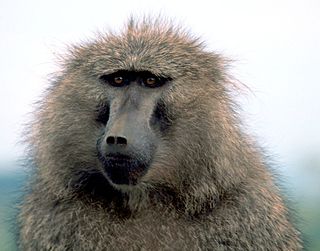 W
WPrimatology is the scientific study of primates. It is a diverse discipline at the boundary between mammalogy and anthropology, and researchers can be found in academic departments of anatomy, anthropology, biology, medicine, psychology, veterinary sciences and zoology, as well as in animal sanctuaries, biomedical research facilities, museums and zoos. Primatologists study both living and extinct primates in their natural habitats and in laboratories by conducting field studies and experiments in order to understand aspects of their evolution and behaviour.
 W
WEugene Cussons was the Managing Director of "Chimpanzee Eden" as well as Rescue Director of the Jane Goodall Institute (JGI) in South Africa. He is also the host of Animal Planet's Escape to Chimp Eden, author of the book Saving Chimpanzees and is the Executive Director and Ambassador of the "Generation Now" movement.
 W
WWolfgang Peter Johann Dittus is a primatologist and behavioral ecologist based in Sri Lanka.
 W
WRobin Ian MacDonald Dunbar is a British anthropologist and evolutionary psychologist and a specialist in primate behaviour. He is currently head of the Social and Evolutionary Neuroscience Research Group in the Department of Experimental Psychology at the University of Oxford. He is best known for formulating Dunbar's number, a measurement of the "cognitive limit to the number of individuals with whom any one person can maintain stable relationships".
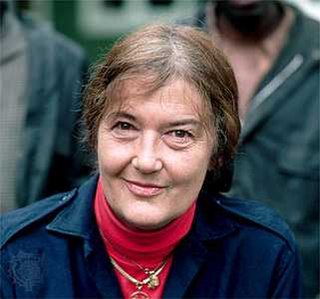 W
WDian Fossey was an American primatologist and conservationist known for undertaking an extensive study of mountain gorilla groups from 1966 until her 1985 murder. She studied them daily in the mountain forests of Rwanda, initially encouraged to work there by paleoanthropologist Louis Leakey. Gorillas in the Mist, a book published two years before her death, is Fossey's account of her scientific study of the gorillas at Karisoke Research Center and prior career. It was adapted into a 1988 film of the same name.
 W
WRichard Lynch Garner was an American researcher who studied the language of primates, especially chimpanzees, and pioneered the use of playback devices in this kind of research. His theories and findings have been superseded by more recent research, but his work has been an inspiration to such notable scientists as Robert Yerkes and John Peabody Harrington.
 W
WColin Peter Groves was a British-Australian biologist and anthropologist. Groves was Professor of Biological Anthropology at the Australian National University in Canberra, Australia.
 W
WDonna J. Haraway is an American Professor Emerita in the History of Consciousness Department and Feminist Studies Department at the University of California, Santa Cruz, United States. She is a prominent scholar in the field of science and technology studies, described in the early 1990s as a "feminist, rather loosely a postmodernist". Haraway is the author of numerous foundational books and essays that bring together questions of science and feminism, such as "A Cyborg Manifesto: Science, Technology, and Socialist-Feminism in the Late Twentieth Century" (1985) and "Situated Knowledges: The Science Question in Feminism and the Privilege of Partial Perspective" (1988). Additionally, for her contributions to the intersection of information technology and feminist theory, Haraway is widely cited in works related to Human Computer Interaction (HCI). Her Situated Knowledges and Cyborg Manifesto publications in particular, have sparked discussion within the HCI community regarding framing the positionality from which research and systems are designed. She is also a leading scholar in contemporary ecofeminism, associated with post-humanism and new materialism movements. Her work criticizes anthropocentrism, emphasizes the self-organizing powers of nonhuman processes, and explores dissonant relations between those processes and cultural practices, rethinking sources of ethics.
 W
WJohan Antoon Reinier Alex Maria "Jan" van Hooff is a Dutch biologist. He was professor of comparative physiology at Utrecht University from 1980 to 2001. He is best known for his research involving primates.
 W
WKinji Imanishi was a Japanese ecologist and anthropologist. He was the founder of Kyoto University's Primate Research Institute and, together with Junichiro Itani, is considered one of the founders of Japanese primatology.
 W
WTetsuro Matsuzawa is a primatologist who was a past director of the Primate Research Institute of Kyoto University.
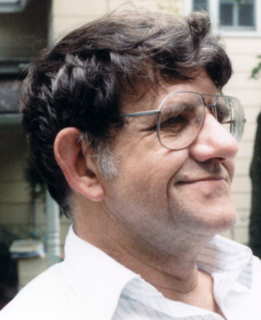 W
WEmil Wolfgang Menzel Jr. was a prominent primatologist and comparative psychologist. In many ways, his pioneering observations and research laid the foundation and set the precedent for many contemporary research topics in psychology and primatology including nonverbal and gestural communication, theory of mind and behavioral economics.
 W
WAdolf Bernhard Meyer was a German anthropologist, ornithologist, entomologist, and herpetologist. He served for nearly thirty years as director of the Königlich Zoologisches und Anthropologisch-Ethnographisches Museum in Dresden. He worked on comparative anatomy and appreciated the ideas of evolution, and influenced many German scientists by translating into German the 1858 papers by Darwin and Wallace which first proposed evolution by natural selection. Influenced by the writings of Wallace with whom he interacted, he travelled to Southeast Asia, and collected specimens and recorded his observations from the region.
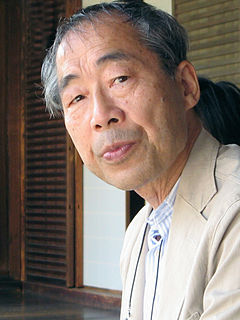 W
WToshisada Nishida was a Japanese primatologist who established one of the first long term chimpanzee field research sites, in 1965, and was the first to discover that, instead of forming nuclear family-like arrangements, chimpanzees live a communal life with territorial boundaries. He also laid the basis for the new field of zoopharmacognosy on discovering the potentially medicinal use of plants by wild chimpanzees. He was full professor in the Zoology Department of Kyoto University. Toshisada Nishida received the Leakey Prize for his accomplishments in human evolutionary science.
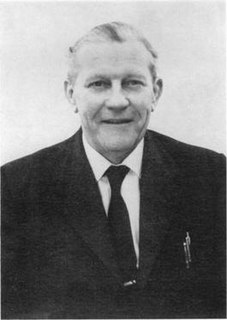 W
WDr William Charles Osman Hill FRSE FZS FLS FRAI was a British anatomist, primatologist, and a leading authority on primate anatomy during the 20th century. He is best known for his nearly completed eight-volume series, Primates: Comparative Anatomy and Taxonomy, which covered all living and extinct primates known at the time in full detail and contained illustrations created by his wife, Yvonne. Schooled at King Edward VI Camp Hill School for Boys in Birmingham and University of Birmingham, he went on to publish 248 works and accumulated a vast collection of primate specimens that are now stored at the Royal College of Surgeons of England.
 W
WBerthe Rakotosamimanana was a primatologist and palaeontologist from Madagascar.
 W
WMatthew Charles Richardson is a Canadian author and primatologist, best-known for his expertise on extinct and endangered species.
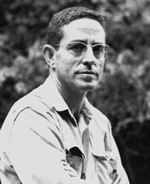 W
WJordi Sabater Pi was a Spanish primatologist and worldwide specialist in ethology, the study of animal behavior. Sabater was known for describing the cultural behaviors of several species, including the use of tools by chimpanzees. During the 1960s, he purchased Snowflake, a very rare albino gorilla, and transported him to Barcelona Zoo, where he lived until his death in 2003.
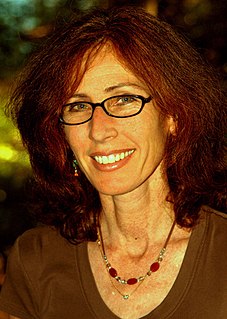 W
WKaren B. Strier is a primatologist. She is a Vilas Research Professor and Irven DeVore professor of Anthropology at the University of Wisconsin–Madison, and co-editor-in-chief of Annual Review of Anthropology. The main subject of her research is the Northern Muriqui, a type of spider monkey found in Brazil.
 W
WJoaquim Veà Baró was a Catalan primatologist.
 W
WFranciscus Bernardus Maria "Frans" de Waal is a Dutch primatologist and ethologist. He is the Charles Howard Candler Professor of Primate Behavior in the Department of Psychology at Emory University in Atlanta, Georgia, director of the Living Links Center at the Yerkes National Primate Research Center at Emory, and author of numerous books including Chimpanzee Politics (1982) and Our Inner Ape (2005). His research centers on primate social behavior, including conflict resolution, cooperation, inequity aversion, and food-sharing. He is a member of the United States National Academy of Sciences and the Royal Netherlands Academy of Arts and Sciences.
 W
WRichard Walter Wrangham is an English anthropologist and primatologist. His research and writing have involved ape behavior, human evolution, violence, and cooking.
 W
WRobert Mearns Yerkes was an American psychologist, ethologist, eugenicist and primatologist best known for his work in intelligence testing and in the field of comparative psychology.